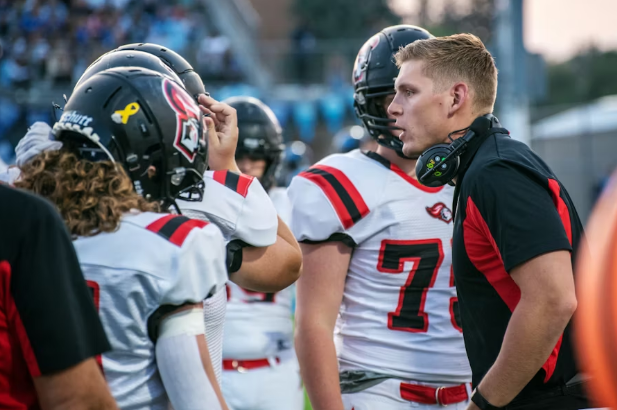
Strong starts in the NFL do more than pad win totals. They shape team narratives, impact job security, capture the attention of fans, and shift front office strategies before the season’s halfway mark.
A franchise with playoff hopes cannot afford to stumble out of the gate. Early results often dictate how coaches are viewed in press conferences, locker rooms, and ownership meetings. By Week 5, many fan bases have already formed clear opinions, based entirely on initial performance.
For coaches, each early win reduces noise from critics. For front offices, it builds justification for long-term planning. While one or two late-season surprises can shake things up, September and October remain critical. These opening weeks are where contenders separate from the rest and where pressure starts to mount for teams lagging behind.
Fast Starts Shape the Coaching Conversation
A solid September can change the tone around a team. When a coach opens 3-1 or better, questions about job security often disappear. Owners and general managers become less reactive, allowing plans to develop. It’s not just about wins, it’s about optics. Losing early can be a sign of an uphill battle to come, especially noted in media markets where expectations are already high.
Even established coaches are not immune. Just last year, a former Super Bowl-winning coach found himself under fire after a 1-3 start. It wasn’t that he forgot how to lead. It was the optics of a slow beginning in a season billed as a turning point. On the flip side, coaches with less pedigree often get outsized credit when their teams overachieve early. That short window creates opportunity, but also risk.
The NFL standings magnify everything. A one-game lead in September can look like momentum. A one-game deficit can spark rumors. Those first four or five games act as a magnifying glass, exposing strengths or revealing cracks that were easy to ignore in preseason.
The Impact on Front Office Decisions
Early-season records influence more than just team morale; they directly affect decision-making behind the scenes.
Trade Strategy Shifts With Early Records
Early records shape how front offices approach the season’s midpoint. A strong start usually leads to stability, but teams that stumble by Week 5 often begin exploring trade options. Even fringe playoff hopefuls may quietly move veterans to recoup value, especially if the roster lacks long-term cohesion. The NFL standings become the trigger for shifting from win-now mode to asset-building.
Leadership Must Balance Optics and Long-Term Goals
Ownership expects front offices to read early signals without overreacting. A 2-3 start against playoff teams may not justify a teardown, but public pressure can cloud judgment. Strong leadership means knowing when to stay the course, even when the NFL standings tell a harsher story.
Locker Room Confidence Builds or Collapses
Winning early validates offseason decisions. It affirms new coordinators, solidifies quarterback choices, and gives weight to training camp battles. The longer a team stays close to the top of its division, the more players buy into systems.
That belief matters. A 3-1 start often quiets positional frustration. Players are less likely to question snap counts or play designs when they’re near the top of the NFL standings.
Conversely, early losses lead to doubt. A wide receiver with two targets might begin voicing frustration. A cornerback in a new scheme may second-guess his positioning. Not because the game plan is broken, but because the scoreboard says it might be.
Coaches know this, which is why messaging becomes so calculated in September. It’s not just about next week’s opponent. It’s about setting the emotional temperature in the locker room. Early wins give space to correct mistakes. Early losses force leaders to do damage control before Halloween.
Fans and Media Set the Tone Faster Than Ever
In today’s media environment, narratives form fast and rarely wait for full context. By Week 2, debate shows begin labeling teams as contenders or disappointments. Fans aren’t just following highlights; they’re watching the numbers move, especially as odds shift alongside team records.
A quick look at the latest NFL standings, often updated in real time on sportsbook platforms like FanDuel, helps shape those narratives even further. These listings do more than show win-loss records. They feed into betting lines, playoff probabilities, and public sentiment. Coaches might claim to tune it out, but the pressure is tangible. A team sitting at the bottom of its division, even briefly, becomes a talking point.
For coaches on the edge, that visibility turns up the heat. A 0-3 start shows up on every standings board, app interface, and betting site. That exposure influences everything from locker room energy to the front office’s willingness to be patient.
Late Surges Don’t Always Save the Season
Comebacks are romanticized in sports. A team going from 1-4 to the playoffs makes for great headlines. But statistically, the odds are stacked against it. That’s why early positioning is so critical. Teams at the top of the NFL standings by Week 5 tend to stay in contention. There are exceptions, but the trend holds more often than not.
Late surges often require perfection. Injuries must be avoided. Divisional rivals must falter. And even then, a tie-breaker can end a run. Early wins provide a cushion. They offer breathing room in case of midseason slumps. Without them, everything has to go just right.
For coaches trying to build something sustainable, that’s too thin a margin. They would rather collect wins early and manage expectations later than face weekly elimination scenarios by November. Consistency starts with those first four games. They aren’t just part of the season; they often define it.
Every Game Shapes the Bigger Picture
In the long grind of an NFL season, each week brings new storylines. But those opening matchups carry extra weight. They build the foundation on which playoff runs, contract extensions, and team identities are built. Coaches know it. Players sense it. Fans react to it.
A season’s final record may be judged in January, but its story often begins in September. That’s why early wins matter. They don’t just keep a team near the top; they insulate it from everything that comes next.


